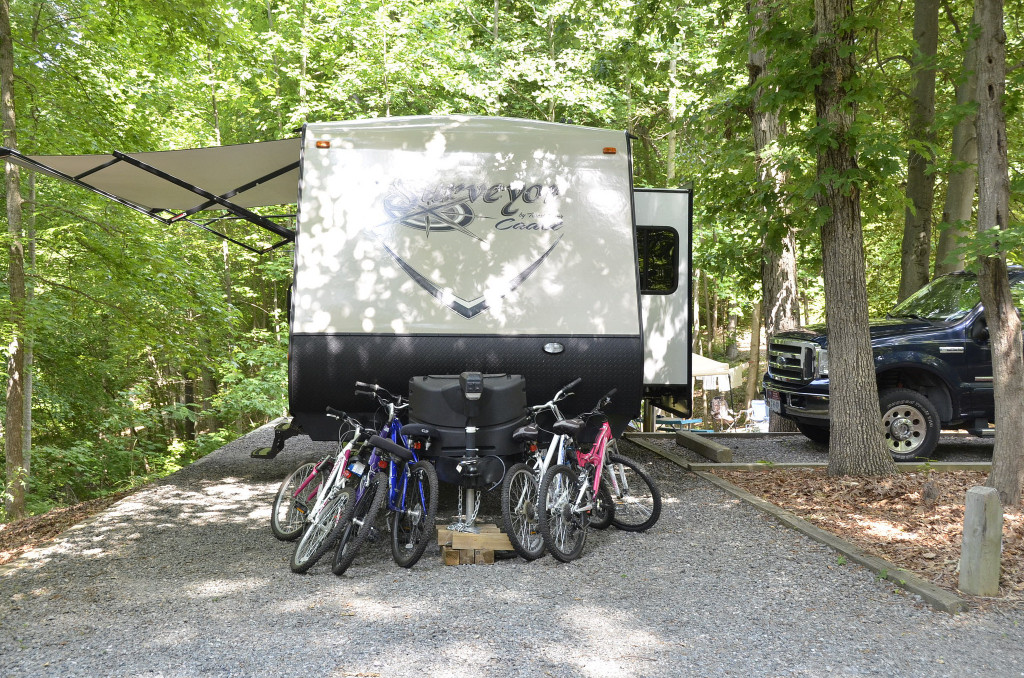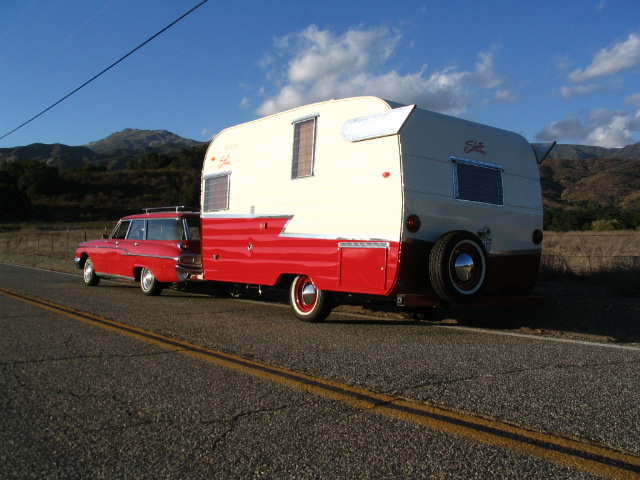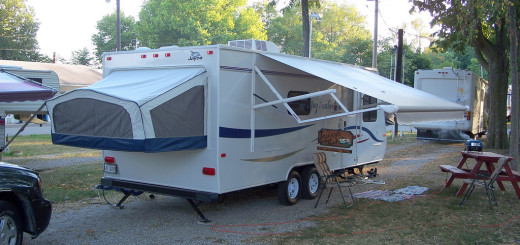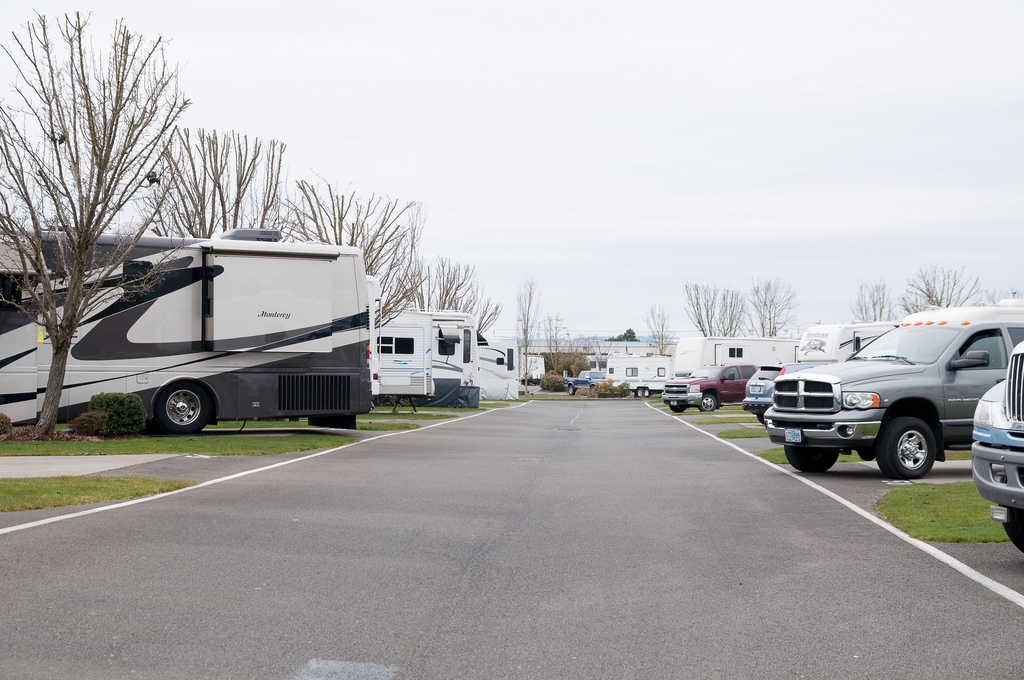Travel trailers started out small, more out of necessity than anything else, but industry trends have led to larger and larger models in the last few decades. Trailer lengths that used to be the sole domain of the mostly-stationary park model first became available in the form of fifth wheels, and then in standard travel trailer models, many of which rivaled even luxury motor homes in terms of features, fixtures and finishing touches.
But is bigger really always better in the RV world? The fact is that while many small travel trailers are designed as bargain basement models, there are actually options for every conceivable budget out there, and shorter, lighter travel trailers actually convey a number of benefits when compared to their larger cousins.
Why Bigger Isn’t Always Better
A lot of full timers choose a towable over a motorhome, which is a lot easier to do since modern towables are a whole lot more livable than older units, and the introduction of slide-outs in travel trailers and fifth wheels can create a tremendous amount of living space that used to only be available in luxury motorhomes. If you aren’t living in your towable full time, though, there are actually a number of benefits to going smaller, including:
- Lower purchase price
- Easier to clean and maintain
- Towable by a wider range of vehicles
- Better fuel economy for your tow vehicle
- Easier to navigate smaller state and federal parks
- May be possible to store at home or cheaper to store elsewhere
The list goes on, but the basic idea is that small travel trailers are often less expensive, easier to tow and store, and provide better access to various parks and campgrounds, than larger travel trailers, fifth wheels and motorhomes, while not locking you into a one-size-fits-all solution regardless of your budget. If you’re really looking to save money, then you can’t find a cheaper RV than a small pop up camper, and rigid-walled small travel trailers come in a close second. However, there are more manufacturers of travel trailers out there than any other type of RV, and with that wide range of manufacturers comes a tremendous number of options, and you can bet that at least one will fit both your budget and your sensibilities. If you’re looking for luxury on two wheels, but you still want the other benefits of a small travel trailer, you definitely don’t have to forgo features like slide outs, leather upholstery and premium fixtures.
Looking to the Past For Small Travel Trailers
Everything old is new again, and the past is a great place to look for small travel trailers if you’re into retro kitsch. A lot of old trailer designs, like the iconic teardrop and nostalgic canned ham, have made a resurgence in recent years, but there are also a ton of vintage units still out there, either in need of a little tender loving care, or ready to jump right into. The best part is that many vintage small travel trailers were originally designed to be towed by the passenger cars of the day, so you may find that the towing requirements are well within the range of your small SUV or pickup.
In fact, you can’t really get more affordable or easier to tow than a vintage teardrop trailer, and as the style has started to come back into vogue, custom builders are hard at work recreating this much-loved design with a variety of modern touches. Of course, if you’re mechanically inclined and not afraid of a little hard work, you may be able to save a bunch of money by purchasing a vintage travel trailer that’s in a state of disrepair, stripping it, and restoring it from the ground up.
The Modern World of Small Travel Trailers
The current marketplace of small travel trailers starts with pop ups, but it doesn’t end there. Pop ups are the smallest, lightest camping trailers that you’ll find on the market today, and some of them are even designed to be pulled by appropriately equipped passenger cars. In fact, the very smallest pop ups are actually made for motorcycles and bicyles, but those units, and most other pop ups, lack amenities like bathrooms, kitchen facilities, and any kind of useful interior living space, which make them poorly suited to cold weather camping, or even drying out on a rainy day.
Rigid-walled travel trailers typically start out in the 15-18′ range, depending on the manufacturer, and many of the smallest, lightest units come with the sort of facilities and features that you’d expect out of a modern travel trailer, including a bathroom and shower, kitchen with stove, fridge, and often a microwave, and sleeping space for between two and four people. Some of the smallest rigid-walled camping trailers also come with pop-out sections that provide extra sleeping quarters, which can be kept closed in inclement weather to help keep it more comfortable inside.
Finding the Right Small Travel Trailer
Deciding on the best small travel trailer will depend on what you’re looking for, but some of the factors you’ll want to keep in mind include:
- Budget
- Tow vehicle rating
- Daytime occupancy
- Sleeping quarters
- Potential weather conditions
One of the biggest benefits of going smaller is price, but it’s still important to take your budget into consideration. If you have a little more to spend, you may find that a feature like a built-in generator, a slide-out, or even some high end finishing touches may totally change your camping experience. Of course, the second most important factor to consider before you even start looking at potential trailers is your tow vehicle, because it’s absolutely imperative that you don’t go any bigger than your tow vehicle can handle.
Daytime and nighttime occupancy are also both important factors, and the weather conditions that you expect to deal with can play into the mix as well. When we talk about daytime occupancy, we mean that you should take into account how many people you expect to hang out inside your trailer during the day, either because they have, due to inclement weather, or because they want to. If you prefer to spend time outdoors, and either don’t expect bad weather or don’t mind it, then you won’t need a whole lot of interior living space or seating, but if you expect to spend a lot of time cooped up in your trailer, then you may want to consider a slightly smaller rig or a slide-out. Sleeping space is even more important, and it only takes into account the people who you expect to say overnight in your camper. Keep in mind that when a travel trailer purports to sleep four, that typically means it has two sleeping surfaces, each of which can accommodate two people.
Small Travel Trailer Manufacturers
Most RV manufacturers that have a towable line offer some type of small travel trailer. Some of these manufacturers include:





